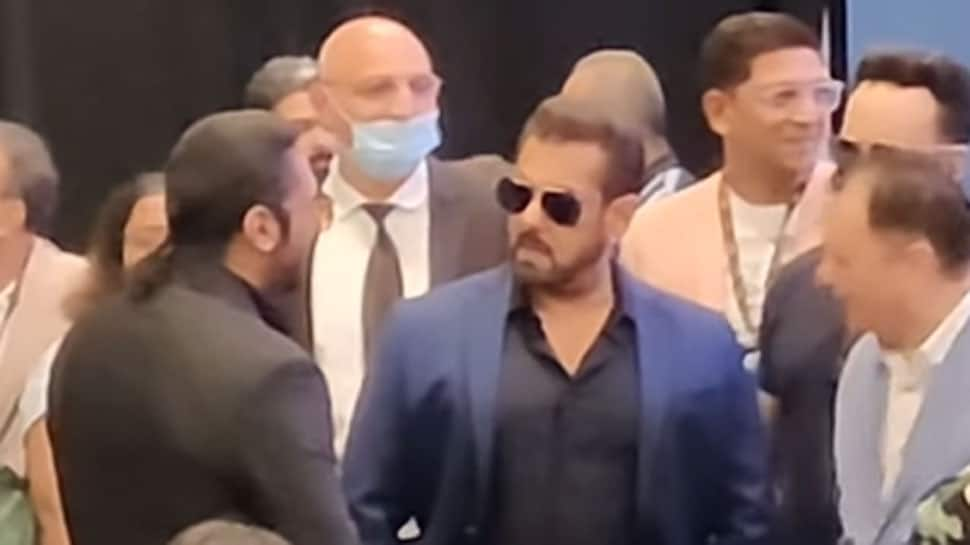Sadly, unlike Ravi, few young cancer patients in India can make that claim. While in Western countries children with cancer have high survival rates, in India the national survival rate for young people with cancer is less than 20%, according to the World Health Organization. Lack of timely diagnosis, limited access to treatment, lack of financial assistance and, in many cases, late detection lead to such low survival rates.
While in Western countries children with cancer have high survival rates, in India the national survival rate for young people with cancer is less than 20%, according to the World Health Organization.
With such a catastrophic chance of beating the disease, young children with cancer and their parents are going through an ordeal unimaginable in our country. “Living with the disease has made me angry and aggressive,” says Ravi, who was diagnosed with blood cancer when he was 12. He resented everything and often vented his anger and exasperation on his parents, who were struggling very badly. badly to ensure his treatment and help him cope with the situation.
Ravi also remembers being very scared. “At night, I didn’t sleep. I was afraid of dying if I fell asleep.
However, one night, something unusual happened that took away all his anger and caused him to find hope in himself.
“As usual, I was trying not to fall asleep that night when I heard my parents sobbing together. They were so tired of battling illness and looking for money at that time. , and I heard them say it would be better if they poisoned our food, and we all died,” he says.
It was the moment that changed everything for him. Ravi decided that no matter how little time he had left with his parents, he would make them happy. “During my chemo, when all my hair was gone, I would dress in my mother’s clothes and imitate her. It gave me so much joy to see her laughing at me when I goofed.
Hospital friends and rap songs
Ravi says cancer fundamentally changed him – from an introverted, quiet child to an extrovert always looking to make friends. As his treatment continued, he missed school a lot and eventually lost contact with his old friends. However, he befriended other cancer patients in the hospital. “Our OPD would be the same day of the week. So all of us who were cancer patients met every week. However, we soon started dating, outside the hospital as well, and our weekly get-togethers turned into fun outings and we became friends,” he says.
Ravi says he survived this phase only because of hope and good old rap music. “I was listening to ‘Namumkin jaisi koi bhi cheez nahi’ by Honey Singh on repeat. I pumped myself up, I kept telling myself that nothing is impossible and I am living proof that there is nothing really impossible”, he adds.
Go beyond cancer
Dr Suresh Advani, Senior Oncology Consultant at SL Raheja Hospital in Mumbai, says he has seen that once a child has overcome cancer and suffered the trauma of living with the disease, he usually does not want not that this experience defines his life.
“I think they are so relieved after their recovery that they don’t want to think about the disease anymore. They also have a sense of gratitude towards life and everyone around them, and they want to make this “second life” as meaningful as possible. They take classes, learn new things, meet new people and live full lives,” says Dr. Advani.
 iStock
iStockMany children suffer from anxiety and depression, post-traumatic stress and adjustment problems after recovering from illness.
However, no two cancer survivor journeys are alike. Dr Sapna Bangar, a psychiatrist and head of the Mpower center in Mumbai, explains that after childhood cancer survivors recover from the disease and settle down, the mental health sequelae begin to manifest in several cases .
“I’ve seen a lot of children with anxiety and depression, post-traumatic stress and adjustment issues. They also go through image and self-esteem issues, especially in the case of teenagers. After all, it is not easy to lose your hair or keep losing weight at any age. But it is especially difficult for teenagers. Another thing that is common, especially in young children who survive to cancer, is a feeling of guilt. They feel somehow responsible for the disease. They think that they are the cause of their parents’ misfortune and that these problems must be solved within the framework of a post-cure treatment. .
Dr. Bangar further says that even the most normal medical issues sometimes get worse in their head. “So, for example, a regular headache might trigger a panic attack or an anxiety attack because they worry if it’s a relapse of their symptoms,” she adds.
Fill gaps
Devansh Gulati, 21, was first diagnosed with thyroid cancer when he was 13. His parents did not initially tell the Class VIII student what his illness was, although he was often hospitalized. However, one day he started reading an information board hanging on AIIM’s Rajkumari Amrit Kaur building in Delhi. The symptoms on the board matched his. It was then that he realized he had cancer.
At 13, death is not the first thing that comes to mind. Teenagers are generally more concerned with going to school, meeting their friends, having new experiences. Gulati was no different. “While I was undergoing treatment, a lot of things changed in my group of friends. There are a few friends who haven’t left me since, but most just drifted away.
Some even made Gulati miserable. He recalls an incident at a friend’s house where he was made to feel his disease was contagious. It was a bizarre experience for him and sent him into a spiral of negativity.
Dr. Anil Sethi, a Mumbai-based psychologist, says children undergoing cancer treatment have to be admitted to hospital multiple times. So they are missing school bits. Even after recovering, they find a huge gap to fill while trying to get back to normal. It’s almost as if their lives have fallen through the cracks. And while they were busy caring about something as basic as survival, they didn’t live. Everyone around them has moved on.
However, Sethi says children are generally more adaptive and resilient than adults. They adjust over time and in some cases even come back stronger. “Children are generally more adaptable than adults, and they cope better with new (and sometimes even difficult) situations if they receive the right kind of support. In small towns, this type of support is difficult to obtain, since access to treatment becomes a task in itself. For a life-threatening condition like cancer, mental health support is also extremely crucial.
Gulati got the support he needed from an NGO. He finally found the strength to embark on a journey to follow his passion. “After the first years of battling the disease, I was just afloat and had no sense of direction, when a Can Support volunteer asked me, ‘what do you want to do?’. I told him I wanted to be an actor, so he helped me join a workshop at the National School of Drama (NSD),” says Gulati.
After recovering, at the age of 19, Gulati joined a theater group called The Films and Theater Society, and worked there as an actor as well as a production assistant. “They do shows all over the country, so I’ve traveled a lot with them. Since I started working with them, I had almost forgotten that I was a patient with thyroid cancer. That’s what I took as the motivation for my life now. I know that if I follow my passion and continue to walk this path, there will be no fear,” he adds.
According to the Indian Cancer Society, more than 50,000 new cases of childhood cancer occur every year. These children too are engaged in a shadow dance of hope and despair every day. It’s a tough disease – physically exhausting and emotionally draining – but, as Ravi, Gulati and several other children across the country show, cancer does not have the ability to shatter hope, conquer minds and, more importantly, it cannot paralyze love.
 Xoven Agricultor
Xoven Agricultor



